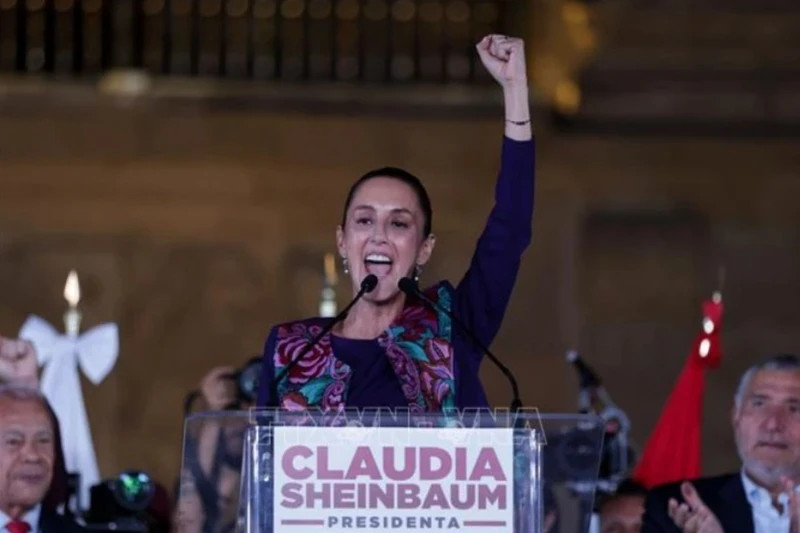In her inaugural speech, the new President of Mexico stated that during her term, which lasts until 2030, she will focus on social welfare policies, poverty eradication, and maintaining economic stability. Emphasising her determination to combat the activities of drug cartels, the leader made it clear that she would not allow irresponsibility in this challenging fight.
Claudia Sheinbaum also affirmed that as a mother, a grandmother, a scientist, and a woman of faith, she will accompany the people in their efforts to enhance the rights and status of women.
Her overwhelming victory in the large-scale general election in Mexico has been viewed by public opinion as a significant political turning point. Reuters noted that the victory of the female politician, born in 1962, has asserted the strong voice of women in politics.
Reuters noted that the victory of the female politician, born in 1962, has asserted the strong voice of women in politics.
As one of the closest allies of outgoing President Andres Manuel Lopez Obrador for many years, the new President of Mexico is seen by the media as needing to work hard to break free from the "shadow" of her predecessor and make her own mark.
The road ahead for the new government under the leadership of the new president will not be easy. Expert Michael Shifter from the Inter-American Dialogue (IAD) has stated that the alarming rise of organised crime is the most challenging issue the new government will face. The situation of gang violence in this American nation has eroded social order and investor confidence.
Instability also casts a "dark shadow" over the 2024 general election, as numerous candidates in the election have been attacked by criminal groups. One key factor that led people to support and trust Claudia Sheinbaum in the recent election was that during her tenure as Mayor of Mexico City, the management policies implemented significantly reduced the homicide rate there.
Gender inequality is a "chronic disease" in Mexico, existing across various socio-economic activities. The country ranks among those with the highest rates of femicide in the world. Statistics show that at least 10 women are killed every day in Mexico, the majority of whom are victims of gender-based violence.
Expert Guadalupe Correa-Cabrera at George Mason University (the US) said that the inequalities affecting women, especially among the poorest segments of society, will not change immediately even with a female president in Mexico.
Slowing economic growth and the migration crisis also place heavy pressure on Mexican leaders. At the end of August 2024, the Central Bank of Mexico lowered its GDP growth forecast to 1.5% for 2024 and 1.2% for 2025. Regarding migration, there are increasing reports of missing migrants who have been kidnapped by criminal organisations and held for ransom in northern Mexico.
The relationship between the US and Mexico, as well as the issue of migrants at the border between the two countries, will be influenced by the results of the upcoming US presidential election in November. Many opinions suggest that the Mexico-US relationship may face many challenges if candidate Donald Trump wins in the election.
Leaders of various countries have expressed congratulations to the Mexican people for choosing the first female president in the country's history. In a period of significant upheaval in the regional and international environment, the responsibilities of the government are quite heavy, but public opinion hopes that the female president of Mexico and the new leadership team will guide the country step by step to overcome difficulties.
















